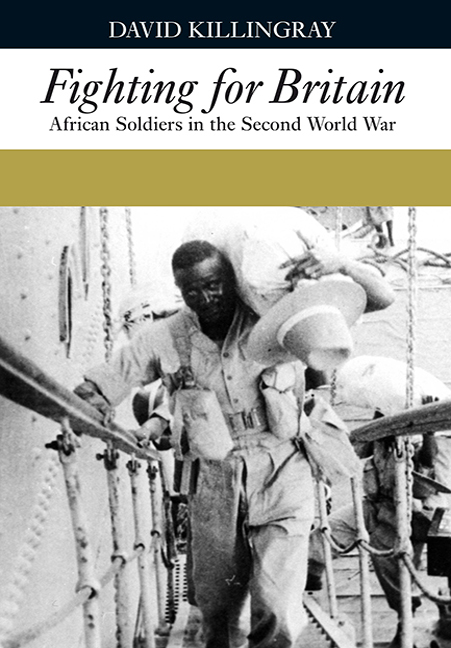Book contents
1 - Africa 1939
Published online by Cambridge University Press: 13 April 2017
Summary
The day war broke out, 3 September 1939, ‘was an ordinary day, a day like today’, recalled Robert Kakembo from Buganda, when serving as a soldier. ‘Most of the tribes in East and Central Africa,’ he continued, ‘did not know what the trouble was about.’ Josiah Mariuki, a Gikuyu, recalled that ‘the great war that came in 1939 between the Europeans did not much effect life on the farm’. Early in the war, he wrote, ‘there was an ominous rumour that Hitler was coming to kill us all and many people went fearfully down to the rivers and dug holes in the bank to hide from the troops.’ Elsewhere in East Africa when people heard of the outbreak of war they immediately thought of the horrors of compulsory labour service during the Great War 25 years before, and some fled into the bush. And a Gikuyu age-group initiated in 1939 ‘had heard so much about the threat of Hitler and of mbobomu, or bombs, that they called themselves “Hitler”, to the alarm of the authorities. Literate Africans in urban areas could read in the local press about the likelihood of war and its consequences. In late August the Uganda Herald informed readers how to act if Italian bombers attacked the main towns: ‘Lie down quietly out of doors and wait till the trouble is over’; and in event of gas, ‘urinate on a handkerchief and hold it over your nostrils and mouth’.
While this advice was being read and absorbed, on the other side of the continent the Governor of Nigeria, Sir Bernard Bourdillon, was on tour and out of radio contact on a boat in the maze of waterways that formed the Niger Delta. To alert him that war was imminent and he was needed back in Lagos, the Chief Secretary had a message dropped to his boat by aircraft. On 3 September governors and administrators in colonial capitals from Khartoum to Lagos and Kampala to Maseru were informed by telegram that war had been declared on Germany.
In each colony local military or police forces were put on a war footing, German commercial enterprises sequestrated, enemy nationals either detained or placed under restriction, and discussions begun on the future economic and social consequences of belligerence.
- Type
- Chapter
- Information
- Fighting for BritainAfrican Soldiers in the Second World War, pp. 11 - 34Publisher: Boydell & BrewerPrint publication year: 2010

